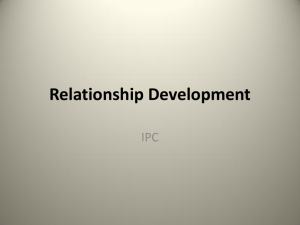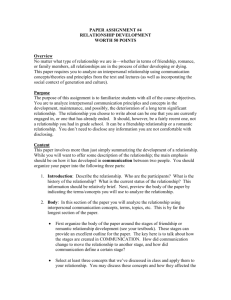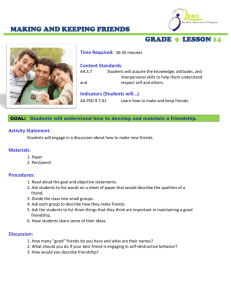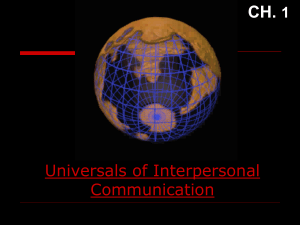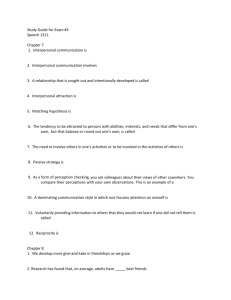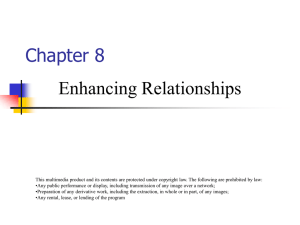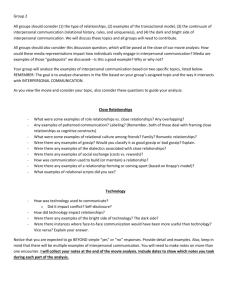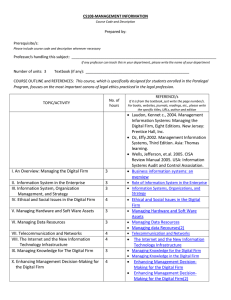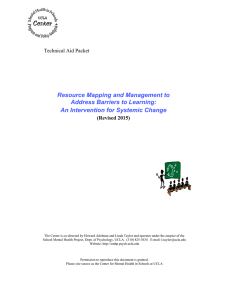Enhancing Relationships Chapter 8
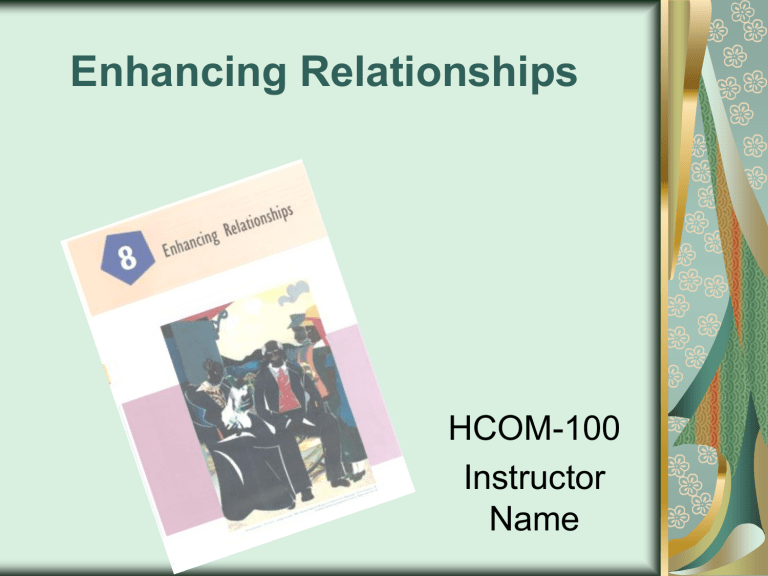
Enhancing Relationships
HCOM-100
Instructor
Name
Communication Principles
Enhancing Relationships Preview
The Importance of Friendship
The Importance of Family
The Importance of Colleagues
Stages of Relationship Development
Managing Interpersonal Conflict
The Importance of Friendship
Friendship over the
Years
Childhood
Adolescent peer relationships are the most important social influence on our behavior
Adult
Elderly and friendships
Enhancing Friendships
Awareness of yourself
We Use Communication To Initiate,
Develop, Deepen And Maintain
Friendships
Listening And Responding Are Critical
Learn to Adapt
The Importance of Family
Changing Nature of
Family
Enhancing Family
Relationships
Discover who we are in families
Earliest lessons about verbal and nonverbal communication
Family relationships are built upon trust
Family relationships involve adaptation
The importance of Colleagues
On the job communication
Communication skills are highly valued
Enhancing Workplace
Relationships
Uncertainty reduction
Verbal and nonverbal communication skills
Listening and responding
Adaptation is critical to successful coworker relationships
Stages of Interpersonal Relationships
Relational Development Proceeds in
Discernable Stages
IPC is Affected by the Stage of the
Relationship
IPC is Affected by the Stage of the
Relationship
IPC Facilitates Movement between the Various Stages
Elevator Model
Relational Escalation
Pre-Interaction
Awareness
Initiation
Exploration
Intensification
Intimacy
Relational De-Escalation
Turmoil or Stagnation
De-Intensification
Individualization
Separation
Post-Interaction
Managing Interpersonal Conflict
IP Conflict is a struggle that occurs when two people cannot agree on a way to meet their needs.
How Conflict Functions in
Relationships
Conflict is normal
Constructive Conflict
Construct something new
Suggest areas of change
Revitalize the relationship
Destructive Conflict
Dismantles relationships
Lack of flexibility is the hallmark
Conflict Involves Power
Interpersonal power means the ability to influence another in the direction we desire.
Power and Relationships
Complementary
Symmetrical
Parallel
Assertive and Aggressive
Communication
Assertive communication takes the listener’s feelings and rights into account; aggressive communication does not.
To assert yourself is to let your communication partner know that his or her behavior is infringing on your rights.
Styles of Managing Conflict
Nonconfrontational
Placating
Distracting
Computing
Withdrawing
Giving in
Styles of Managing Conflict
Confrontational
Control
Win/lose philosophy
Cooperative
Conflict is not a game
Conflict is a set of problems to be solved
Conflict Management Skills
Manage Emotions
Manage Information
Manage Goals
Manage the Problem
What questions do you have?
